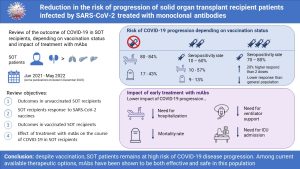Rev Esp Quimioter 2023; 36(4): 421-424
Pulmonary nocardiosis after covid-19 infection: case report and literature review
JOSÉ ORTIZ, FRANCISCO JOVER, VICTORIA ORTIZ DE LA TABLA, ELISABET DELGADO
Published: 27 April 2023
LETTER TO THE EDITOR
http://www.doi.org/10.37201/req/132.2022
Rev Esp Quimioter 2023; 36(4): 421-424 [Full-text PDF]


